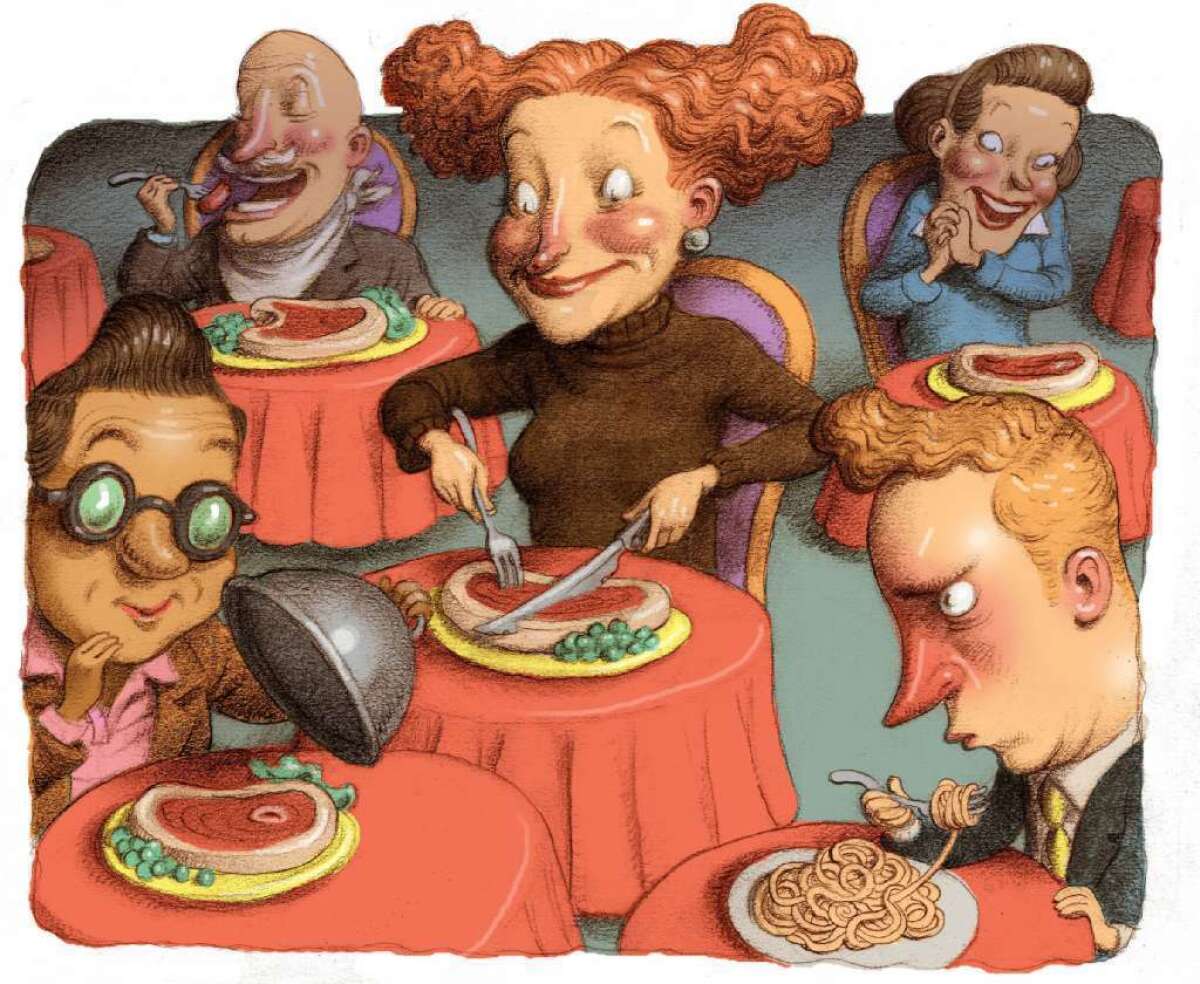To feel better, eat less (yes, even if you’re not overweight)

Does eating what we want make us happier, or could a bit of self-denial improve not only our health but also our mood? New research finds that even those of normal weight might benefit from cutting calories.
- Share via
For the dwindling few of us who don’t actually need to lose weight, the idea of slashing food intake in a bid to extend our healthy life span isn’t universally appealing.
Hedonists the world over, in fact, have denounced the calorie-restriction-for-life-extension idea as a cruel hoax: The bony, cold and irritable cranks willing to deny themselves the comfort of enough food to maintain their weight probably do not actually live longer, they say; it just feels as though their miserable lives go on and on.
See the most-read stories in Science this hour >>
Well, here’s a surprise: These people are not miserable. Compared with healthy adults who went about their lives eating what they wanted for two years, normal-weight people who ate 25% less than they wanted for the same stretch of time were happier and less stressed, slept better and had more robust sex drives.
Researchers have long known that when obese people restrict their calories and lose weight, their moods, sleep and sexual function improve along with many measures of cardiovascular and metabolic health. But the notion that no one with a healthy body weight would choose to forgo about 500 calories a day has apparently discouraged anyone from exploring whether calorie restriction would confer the same benefits upon the slim and healthy.
But researchers at the Pennington Biomedical Research Center in Baton Rouge, La., suspected as much. They teamed up with researchers from Duke, Tufts and Washington universities to conduct a two-year study comparing the effects of calorie restriction on 218 healthy, normal-weight study subjects ages 20 to 57, almost 70% of them women.
The research was published Monday in the journal JAMA Internal Medicine.
Two-thirds of the participants slashed their normal calorie intake by 25%, while the remaining third went about their lives eating as they always had. In addition to checking their weight and, in men, reproductive hormones, the researchers took detailed measurements of each subject’s mood, sleep quality and sexual function.
By the end of year one, the subjects in the calorie restriction group had lost on average 15.2% of their body weight, and 11.5% of body weight by the end of year two. By the end of the study, the calorie restriction group’s average body mass index was 22.6 -- right in the middle of the healthy, normal weight category. Those who continued to eat normally had no change in their weight on average.
Over time, the calorie-restricted subjects reported improving mood compared with their baseline measures, and falling tension levels. Those who had continued to eat normally had poorer moods than the calorie-restricted subjects, and among the few who fell just inside the overweight category (BMI above 25), had worsening depression scores by the end of year two.
On five measures, the calorie-restricted subjects’ perceived sleep quality levels remained the same, and those of subjects who continued to eat as they wished worsened at the end of year one.
By the end of the two-year study, those who had pared their intake reported improvements in their sexual drive and relationships, although men who fed themselves to satiation reported higher arousal scores. At the end of one year, free testosterone levels declined in the men who ate what they wanted, but not in the men whose calories had been pared.
In none of these cases was the average difference between the satiated and the lean and hungry large. But they were clear and judged not to have been statistical flukes. The researchers suggested that physicians could use the findings to reassure their healthy, normal-weight patients that calorie restriction may have some benefits and does not lead to misery.
In a commentary published alongside the new research, UCLA’s Dr. Tannaz Moin wrote that the new research underscores the potential importance of measures that head off weight gain and obesity before they happen. Currently, insurers are required to reimburse physicians for screening and counseling their patients for obesity, but the focus has been on patients who already have become obese.
Because it’s clear from the new research that normal-weight people can be induced to cut their calories over a long period, maybe, wrote Moin, physicians and insurers should be focusing on prevention in younger adults who are still trim and healthy.
Follow me on Twitter @LATMelissaHealy and “like” Los Angeles Times Science & Health on Facebook.
MORE SCIENCE NEWS
Boiling water may have carved mysterious streaks on Mars, study finds
First-class cabin fuels ‘air rage’ among passengers flying coach, study says
Found: Three Earth-sized planets orbiting a dim, red sun. ‘This is only the beginning’




